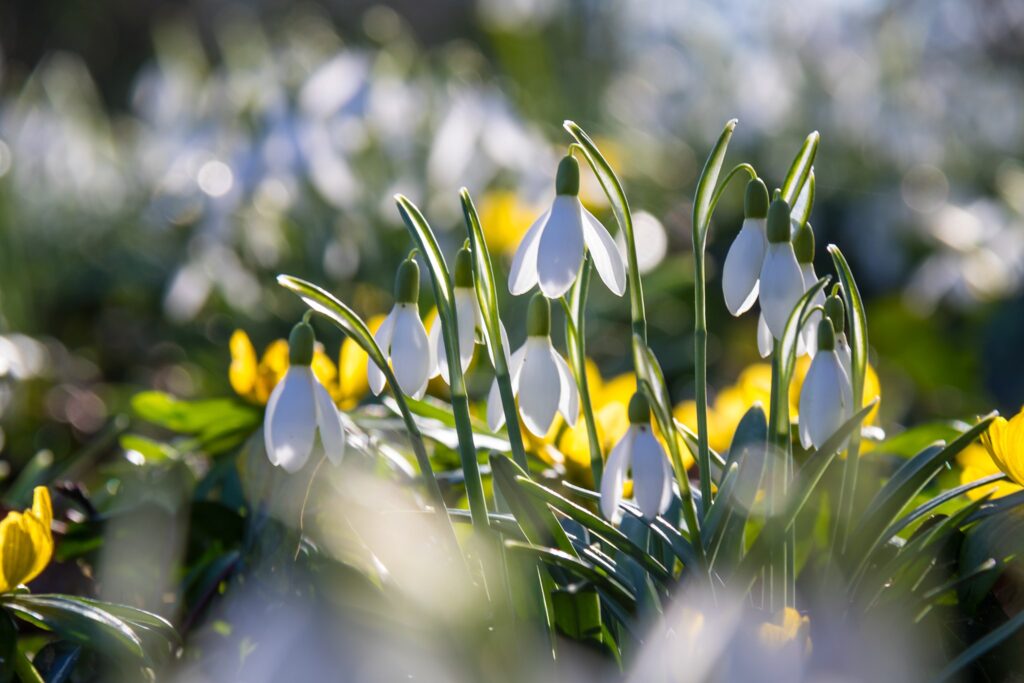
Spring is officially here so it’s time for a spring checklist. Although there’s still some snow in northern Ontario, the piles are starting to gradually shrink and we know that spring is on the way. In Southern Ontario, the snow is gone, snowdrops and aconite are in full bloom and signs of spring are everywhere
Now before you get too excited and start working on this spring checklist, please DON’T compact your soil by getting out there too early.
You can safely do some work such as pruning while the ground is still frozen. But before you can work on your garden beds, the soil must be fully thawed and excess moisture allowed to seep away. Working on wet soil causes compaction and compaction damages drainage and changes the soil structure. This causes more problems than many realize …and worst of all – Weeds seem to thrive in such conditions!
Spring Checklist
March
- Houseplants – Increase water and feeding as plants start actively growing. Repot them now if needed.
- Amaryllis – After the flowers have faded, cut the flower stalk to within 1″ of the top of the bulb. Give plants a maximum of sun and feeding to produce a large healthy bulb & flowers for next year.
- Start seeds indoors for broccoli, Brussels sprouts, cauliflower etc. Read up on “Seed Starting”
- Winter Sowing – Start leaf lettuce seeds outside in cold frames or large recycled clear, covered containers.
- Lawn Plans – Read about Lawn alternatives. Convert your yard to something more environmentally friendly and useful. One goal might be for each of us to reduce our front lawn size by 1 sq meter this year!
- Dahlia, calla, canna, etc. – Check those stored bulbs for rot or signs of disease. Spray lightly if bulbs are dry or shriveled. Plan to bring them into the light and warmth in April.
- Pruning – Use clean, sharp tools. Cut back branches to just above another branch or a bud. Remove dead, damaged, diseased wood. Do NOT prune spring-flowering shrubs such as forsythia & lilac until after flowering.
- Apple, cherry, plum, pear trees – Prune before flower buds swell. Remove any dead, diseased twigs and prune for open shape. Pear trees generally don’t require pruning, except for shaping. Spray with horticultural oils to control diseases. More from OMAFRA about Care of fruit trees.
- Evergreens – Prune only to remove broken or dead areas. Many evergreens will not form new buds on old wood. So don’t cut back to the brown, aged stems as it won’t grow back. More about Pruning evergreens
- Raspberries –prune your summer-bearing raspberries now, cutting last year’s fruiting canes down to about 10 cm. Leave the young canes to bear a crop this July.
- Blueberries – prune out dead, damaged, diseased wood to an open shape to increase air circulation.
- Birdhouses– Clean and repair birdhouses for spring nesters.
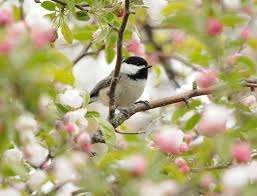
April
- Top up beds with compost if not already done in fall (don’t dig it in, just apply a few cms on top)
- Re-open ponds and water features.
- Reconnect irrigation systems and rain barrels
- Repair winter damage or replace trellis and plant supports (eg position peony rings so stems will grow through)
- Remove potential sources of disease eg bent or broken branches on shrubs, diseased leaves beneath roses or any other litter from plants that were diseased last summer.
- Rake lawns lightly. Aerate them then topdress lightly with good quality compost. Consider using 25% white clover in your top-dress seed mix. Read more about spring tasks for Lawns and Lawn alternatives
- Prepare tools for duty – sharpen lawnmower blade, inflate wheelbarrow tires, clean and lubricate pruners etc
- Repair any garden structures, raised beds and edging.
- Cut back all ornamental grasses
- Start hunting down and digging out those overwintered weeds
- Divide your perennials as you’ll want that done before edging and mulching next month.
More resources:
- Paul Zammit, Toronto Botanical Garden Spring Gardening Checklist
- Landscape Ontario Colourful and cold-tolerant plants and bulbs
- Gardens Don’t Have to be Thirsty City of London’s Growing Naturally program reviews some worthwhile changes we all can make that reduce the impact on the environment and our workload too!
Spring is here and it’s time to get out there and enjoy it …well as soon as it warms up a bit more, and the soil dries out a bit…but we can do a few things now… and get ready and plan the rest!
Happy Gardening!
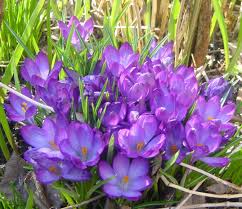
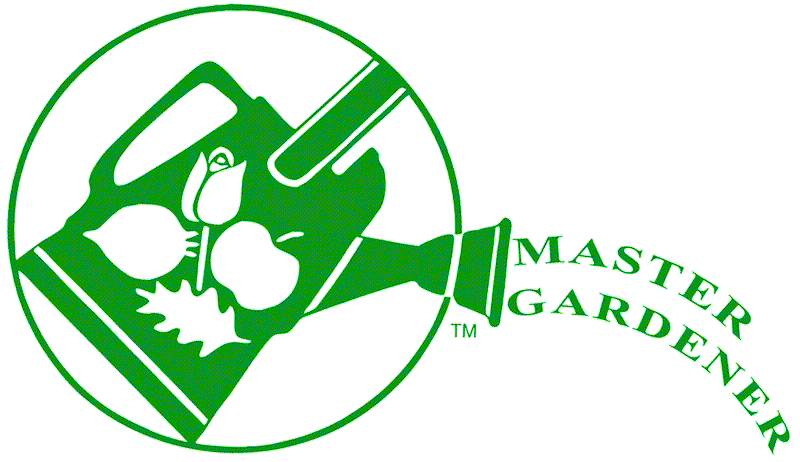

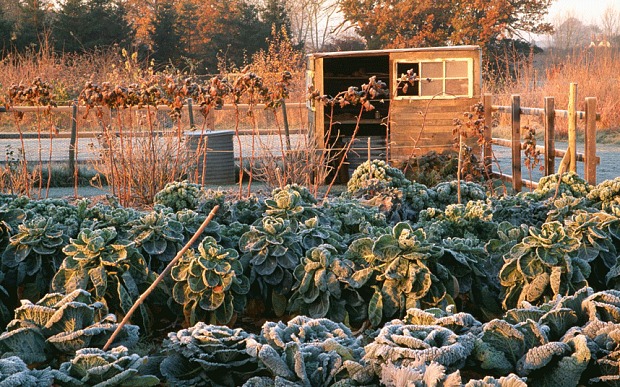
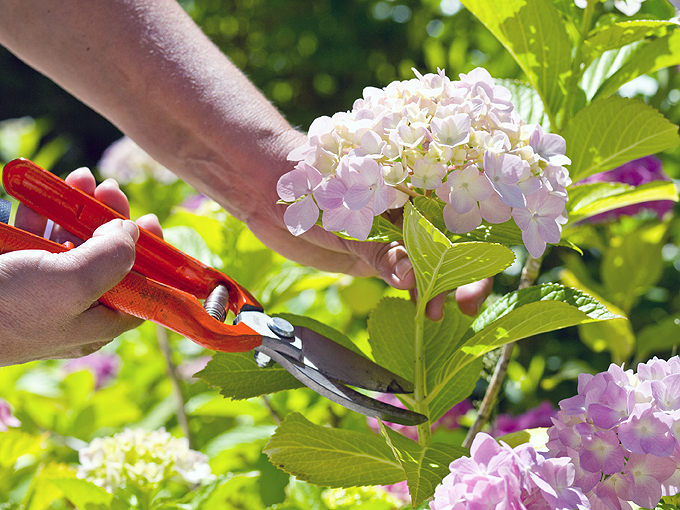
About The Author: Armstrong
As an author and editor, Linda directs her lifelong love of nature and plants to concerns about our environment and how we can do better. In addition to decades of gardening experience, and training as a master gardener, Linda focuses on learning from leading science-based educators and writers, and in the process finds that she uncovers many gardening myths.
More posts by Armstrong